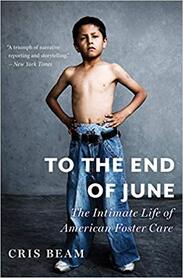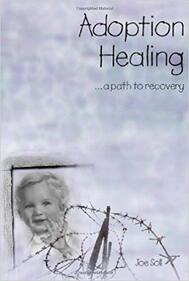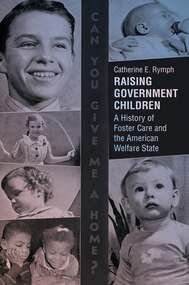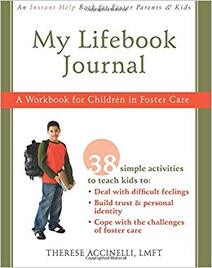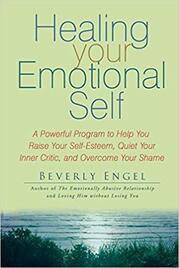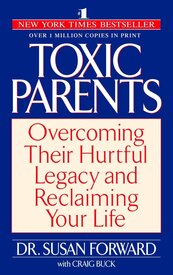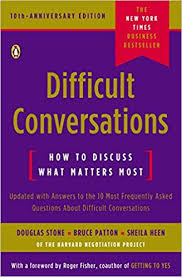Books & Resources for Foster and Adoptive Families, and Birthparents
Understanding family dynamics is often difficult, especially for families touched by foster care and adoption. These books can help you learn, grow, heal, and empower.
Foster Care, Adoption, and Family Dynamic Books
|
To the End of June: The Intimate Life of American Foster Care
by Cris Beam Who are the children of foster care? What, as a country, do we owe them? Cris Beam, a foster mother herself, spent five years immersed in the world of foster care looking into these questions and tracing firsthand stories. The result is To the End of June, an unforgettable portrait that takes us deep inside the lives of foster children in their search for a stable, loving family. Beam shows us the intricacies of growing up in the system—the back-and-forth with agencies, the rootless shuffling between homes, the emotionally charged tug between foster and birth parents, the terrifying push out of foster care and into adulthood. Humanizing and challenging a broken system, To the End of June offers a tribute to resiliency and hope for real change. https://www.amazon.com/dp/0544103440/ref=cm_sw_em_r_mt_dp_U_758oDb097KDXN |
Adoption Healing ...a path to recovery
by Joe Soll In this unique book, the reader is provided with a description of the unfolding of the adoptee's personality from birth, detailing each developmental milestone along the way, followed by different methods of healing the adoptee's wounds, including inner child work, visualizations, healing affirmations, and anger management. Every chapter includes a Myths and Realities of adoption section, a summary of the chapter and exercises to do on one's own. https://www.amazon.com/dp/0967839009/ref=cm_sw_em_r_mt_dp_U_U88oDbY7C4BBF |
Raising Government Children: A History of Foster Care and the American Welfare State
by Catherine E. Rymph Tracing the evolution of the modern American foster care system from its inception in the 1930s through the 1970s, Catherine Rymph argues that deeply gendered, domestic ideals, implicit assumptions about the relative value of poor children, and the complex public/private nature of American welfare provision fueled the cultural resistance to funding maternal and parental care. What emerged was a system of public social provision that was actually subsidized by foster families themselves, most of whom were concentrated toward the socioeconomic lower half, much like the children they served. Analyzing the ideas, debates, and policies surrounding foster care and foster parents' relationship to public welfare, Rymph reveals the framework for the building of the foster care system and draws out its implications for today's child support networks. https://www.amazon.com/dp/146963564X/ref=cm_sw_em_r_mt_dp_U_x78oDbXKZGNEK |
|
My Lifebook Journal: A Workbook for Children in Fostercare
by Therese Accinelli LMFT The simple activities in My Lifebook Journal offer children the tools they need to adjust to their new situation in a healthy way. Using the worksheets in this book, kids can journal about their positive experiences and memories, learn to develop a strong sense of self, identify the people they can rely on, and learn coping skills for dealing with feelings of anger and sadness. Writing down and exploring their thoughts and feelings in just a few minutes each day can help children better understand themselves and their biological and foster families. The resiliency and self-confidence that these activities develop will help children handle not only the transition into foster care, but also the many positive changes in their lives still to come. http://www.amazon.com/dp/1572246332/ref=cm_sw_em_r_mt_dp_U_F-8oDbZH4KJDV |
Healing Your Emotional Self: A Powerful Program to Help You Raise Your Self-Esteem, Quiet Your Inner Critic, and Overcome Your Shame
by Beverly Engel Emotionally abusive parents are indeed toxic parents, and they cause significant damage to their children's self-esteem, self-image, and body image. In this remarkable book, Beverly Engel shares her powerful Mirror Therapy program for helping adult survivors to overcome their shame and self-criticism, become more compassionate and accepting of themselves, and create a more posititve self-image. https://www.amazon.com/dp/0470127783/ref=cm_sw_em_r_mt_dp_U_x0jpDbVWN77D1 |
Toxic Parents: Overcoming Their Hurtful Legacy and Reclaiming Your Life
by Susan Forward When you were a child... • Did your parents tell you you were bad or worthless? • Did your parents use physical pain to discipline you? • Did you have to take care of your parents because of their problems? • Were you often frightened of your parents? • Did your parents do anything to you that had to be kept secret? Now that you’re an adult... • Do your parents still treat you as if you were a child? • Do you have intense emotional or physical reactions after spending time with your parents? • Do your parents control you with threats or guilt? Do they manipulate you with money? • Do you feel that no matter what you do, it’s never good enough for your parents? In this remarkable self-help guide, Dr. Susan Forward draws on case histories and the real-life voices of adult children of toxic parents to help you free yourself from the frustrating patterns of your relationship with your parents — and discover a new world of self-confidence, inner strength, and emotional independence. https://www.amazon.com/dp/0553381407/ref=cm_sw_em_r_mt_dp_U_j9jpDbBFTN2P8 |
|
Difficult Conversations: How to Discuss What Matters Most
by Douglas Stone (While this book is not specifically about foster care or adoption, it is a wealth of information about why we communicate the way we do and what we really mean.) From the Harvard Negotiation Project, the organization that brought you Getting to Yes, Difficult Conversations provides a step-by-step approach to having those tough conversations with less stress and more success. you'll learn how to: · Decipher the underlying structure of every difficult conversation · Start a conversation without defensiveness · Listen for the meaning of what is not said · Stay balanced in the face of attacks and accusations · Move from emotion to productive problem solving https://www.amazon.com/dp/0143118447/ref=cm_sw_em_r_mt_dp_U_NIkpDbCM6B37G |
|
|

